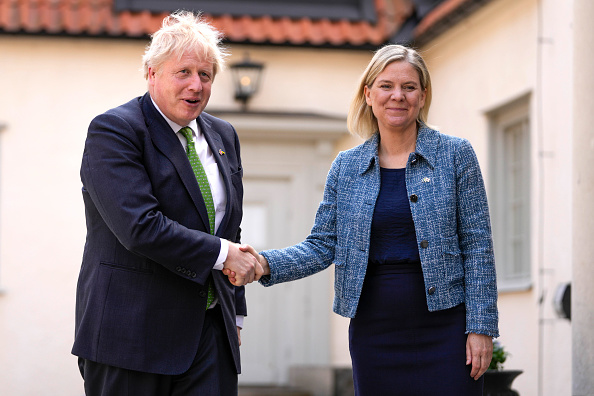Ikea was just the beginning – Sweden’s new tech is ready to invest in Britain

Last week, Boris Johnson visited Stockholm and pledged a mutual security pact with his Swedish counterpart, as tensions with Russia escalated. It was a welcome reassurance of friendship in uncertain times.
This is just the latest chapter in a long history of collaboration between our two nations. The Swedish-British “love-in” (a technical term often used within the walls of our Chamber of Commerce in London) has gone from strength to strength over the last few decades. The strong cultural overlap between Swedes and Brits is reflected in our shared fondness for humility, self-deprecation, and eerie Nordic noir crime dramas – even if we do have vastly divergent views on the importance of the Eurovision Song Contest.
This alignment is also reflected in the business community. Some of Sweden’s biggest companies have been in the UK for over a hundred years, interwoven into the economic fabric of this country. For example, Securitas employs 9,000 people in the UK, Ikea over 10,000 and Handelsbanken has opened 160 branch offices here.
Perhaps surprisingly, this close tie has held firm in the face of Brexit. If anything, the last couple of years have shown the Swedish-British relationship was not contingent on shared EU membership. In the last two months alone, we’ve spoken to over 100 businesses actively looking to expand here, despite the UK now sitting outside the single market.
Swedish businesses have internationalism baked into their DNA – and the UK is a natural place for them to start that journey. For ambitious startups looking to be market leaders, Sweden’s domestic market of 10 million people simply isn’t big enough. This means that foreign expansion has to be on the agenda from day one. Though a country like Germany might technically be a bigger market, for example, Swedes typically choose the UK to expand into, because the business culture is so similar, our English is generally better than our German, and many want to follow in the footsteps of the startups who have succeeded here.
Looking more closely at these companies that are crossing the North Sea, the common denominator tends to be technology. The world-beating Swedish technology precedent is well known, thanks to companies like Spotify, Klarna, Zettle by Paypal, King and Skype. Fine, the Estonians lay claim to at least part of Skype. Within this flourishing tech ecosystem, Sweden’s focus is impact and sustainability specifically, with Atomico’s authoritative State of European Tech report recently revealing Stockholm as the leading city for purpose-driven tech investment over the last five years.
There are many reasons why we’re focused on this area. Our love of nature. Our sizable welfare state, and the sense of collective responsibility it encourages. But perhaps the most relevant factor is simply that we’ve been talking about sustainability in our boardrooms for over 20 years.
A notable example of being ahead of the curve is Swedish private equity firm EQT, which became the first private markets firm globally to formalise science-based targets at the end of last year. Another example is Skanska, the construction and development giant from Sweden. Sustainability is at the heart of everything Skanska does – the organisation pledged to achieve carbon neutrality with net-zero emissions by 2045 and earlier this year joined the SteelZero initiative, requiring it to achieve 100 per cent net zero steel by 2050.
These are not Swedish businesses being sustainable over in Sweden. EQT has backed dozens of British tech companies; Skanska has built motorways, bridges, and tunnels, all over this green and pleasant land. These are examples of Swedish entrepreneurship, accompanied by close economic ties between our two countries, helping Britain become more sustainable.
With the increasing role of technology in modern society, exports like Ikea were only the start for our relationship with the UK. In some ways, it feels like the Swedish-British “love-in” is just getting started.
